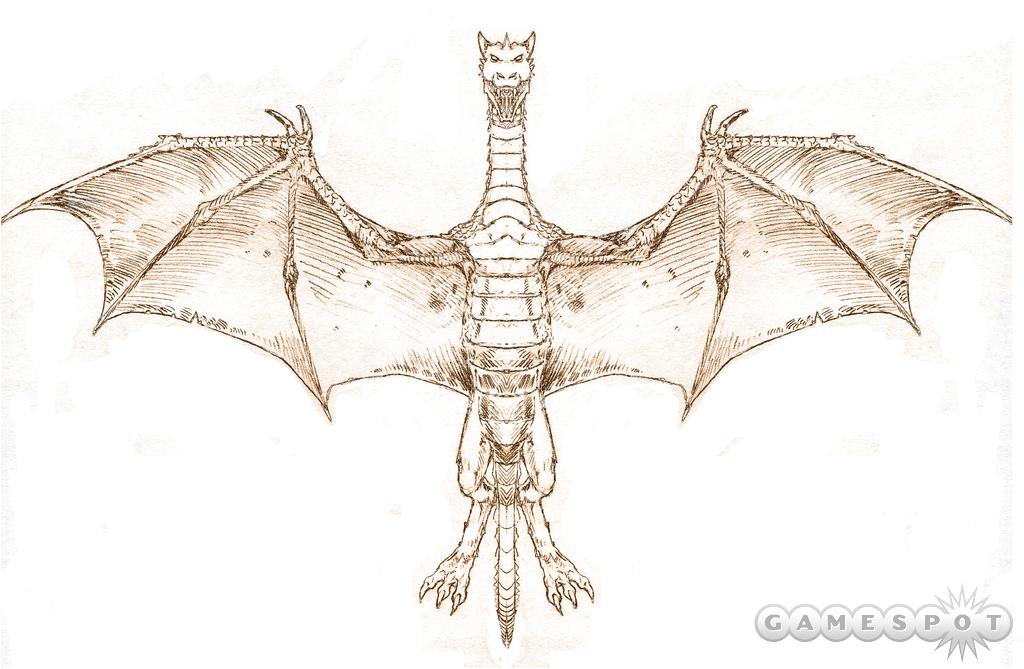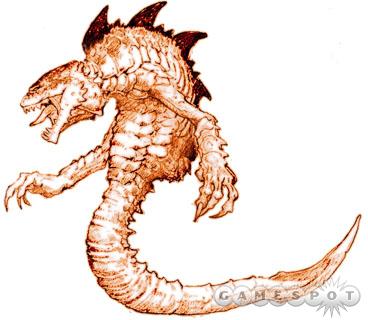Vanguard: Saga of Heroes Q&A
EverQuest cocreator Brad McQuaid has a new fantasy-themed online RPG in development, and he gives us the details in this interview.
Brad McQuaid revolutionized online role-playing games when he helped cocreate Sony Online Entertainment's EverQuest more than five years ago. EverQuest was a blockbuster success, and it remains one to this day. More than five years after its launch, it continues to be the most successful online RPG in North America. But McQuaid made industry shockwaves when he left SOE in late 2001. The following year, he, along with former EverQuest producer Jeff Butler, cofounded Sigil Games Online. Now Sigil's developers are finally taking the wraps off of Vanguard: Saga of Heroes, the project they've been working on the past two years for publisher Microsoft. Not surprisingly, McQuaid and company are sticking to their roots; Vanguard is an online role-playing game that will allow you to explore and adventure in a virtual world with hundreds, and even thousands, of other players at the same time. GameSpot had the opportunity to catch up with McQuaid to get the details on Vanguard.

GameSpot: We've already heard that Vanguard will be a massively multiplayer online RPG. Tell us about the game's setting. Is it high fantasy, futuristic sci-fi, or something else entirely? Why did you decide to choose this setting for the game?
Brad McQuaid: Vanguard is generally what someone would label as high fantasy, although we intend to throw some twists in there too. We chose fantasy for several reasons. First, it's what we know best. We also have been thinking about and planning where fantasy massively multiplayer gamers should go next for some time. Finally, as Sigil's first game, it seemed to make the most sense to choose a setting that is the most proven within the genre.
GS: We know from your personal work on EverQuest that you're extremely familiar with conventional online RPGs. In fact, some might say that at this point, most online RPGs are conventional, that they're too similar. What specific features will set Sigil's game apart from the others?
BM: Actually, we've seen a trend lately to try to appeal to such a broad audience that the core audience has been ignored--even alienated. We plan on bringing back the challenge--the risk and the reward--but at the same time make the game more accessible and address problematic issues like camping and too much downtime. Bottom line: We not only think both [casual and hardcore players] should coexist in the same game, but that it's the direction these games should head.
GS: We're going to assume that the new game will attempt to remedy common issues that are cited by online RPG critics. For instance, how much emphasis will the game place on hack-and-slash combat? Some critics have called out online RPGs for using the pseudo-turn-based "I hit, then you hit" combat system that appeared in EverQuest. How important will combat be in the new game, and how is it going to be exciting and innovative?
BM: Combat is a key component of the game, so there will certainly be hack-and-slash gameplay. But that doesn't mean combat needs to be mindless--it can be very exciting, involved, and visceral.
Crafting also plays a big role in Vanguard, and we're creating a pretty cool interdependent economic and advancement system in which crafting relies on adventuring and vice versa.
GS: How is character development being handled? Can we expect to see something similar to the EverQuest model of characters gaining experience levels and looking for the most powerful loot possible? If not, how will players develop their characters?
BM: It's still mostly a traditional level and class-based system, just much more refined and easier to balance. Item acquisition will also be important (for both adventuring and crafting, I might add).
GS: Also, it's arguable that requiring players to invest a great deal of time and effort to advance their characters to level 50 or so, with a full set of magic armor and weapons, creates a very real attachment between players and their characters. If the new game won't have the usual "grind" to gain levels, how will it make players feel attached to their characters and make them want to continue playing and developing them?
BM: We think the trick is to continue the emphasis on character development because you're absolutely right: It creates an attachment--a sense of pride--in accomplishment and in a player's characters. The "grind," however, is something we're trying to avoid.

First, terms like "grind" and "treadmill" usually have a negative connotation to them--they imply boring repetition associated with character development and advancement. As massively multiplayer game developers, we are responsible for ensuring that the gameplay doesn't feel this way. Clearly, as you build your character you should be having fun. You shouldn't run into a situation where the path to efficient leveling or advancing of skills is the more boring path, and the actual fun part of the game is less efficient. One of our tenets is, "The path of least resistance should also be the path most fun." Now, this doesn't mean the game won't be challenging; rather, it means what you feel drawn to do to advance should also involve actual compelling gameplay.
For example, camping in one spot waiting for a spawn isn't really playing the game. Likewise, sitting on a boat doing nothing or waiting too long to recover between battles isn't playing the game, either. Our advanced encounter system should compel players to move through adventure areas, bringing back that sense of a true dungeon crawl. Travel, too, should involve gameplay and a sense of accomplishment.
At the Vanguard of RPG development
GS: Can you elaborate on the trade system in the game? Some critics would go so far as to say that trade skills in some online RPGs are repetitive, even boring--how will the new game's trade skills make crafting items (tools, weapons, armor, or anything else) exciting and fun?

BM: We agree that crafting systems have been too repetitive and haven't involved enough actual gameplay. Vanguard's crafting system, on the other hand, has many stages to it, each of which should involve risk and reward, much like traditional adventuring.
GS: If Vanguard has a quest system, what plans do you have for it? What kinds of quests will players be able to undertake, and how will they be more than simple errands that require fetching items or killing a certain number of monsters? Please give us an example.
BM: Our quest system involves "flags." Characters are marked such that they can keep track of the quest they're on, and which segment of that quest they're on, in a quest journal similar to those found in modern single-player RPGs. The exciting part is that these flags can be set by all sorts of events. Taking an item from point A to point B can still be done (the traditional "Fed Ex" quest), but, additionally, all sorts of other events can trigger flags. The game can then react in all sorts of cool ways to what flags that character has associated with it, opening up all sorts of new and exciting opportunities and events.
For example, when encountering a non-player character while on a quest, that NPC might react to you based on what you say, what you are wearing, your faction standing, where you've been, and so on.
GS: Beyond combat, crafting, questing, and character development, how else will the game introduce variety to online RPGs? What other features or options will players have access to in between those other activities?
BM: We have a lot of cool ideas in this regard and intend to build these more-ambitious goals on top of a proven foundation. Unfortunately, at least for the near future, these features that we feel will truly take online RPGs to the next level are also part of the "secret sauce" that we will be talking more about as the game nears completion.
GS: Fair enough. A complaint that some critics make about the online RPG genre is that a player is just that--just another player playing a game, rather than an influential hero whose deeds can change the world. How will the new game let players differentiate their characters from each other? How will it let their characters have a real effect on the world?
BM: That's certainly a legitimate complaint. Online RPGs have had to deal with the fact that not every player can be the hero that saves the world or the chief protagonist in some sort of linear storyline often found in single-player games.
That doesn't mean, however, that the world and its inhabitants can't react to players' accomplishments. The simplest example of this would be traditional "leaderboards" integrated more into the gameworld. In other words, if you and your group did indeed recently slay a menacing fiend, why shouldn't nearby cities acknowledge your accomplishments in all sorts of ways? You might not be a "permanent" hero, nor the only hero in the world, but there's a lot of room there to explore in between that and being totally ignored and anonymous.
GS: Finally, is there anything else you'd like to add about Vanguard?

BM: I'd just like to thank everyone for the support we've already received. For months, even though we'd not yet officially announced Vanguard, people have been on message boards and sending e-mails of support. This has really encouraged us, especially during the hard work and long hours necessary to make one of these games.
We really feel we have a lot of exciting ideas to add to online RPGs and that only the tip of the iceberg has been exposed in terms of where these games can and should go. Truly interactive entertainment is going to balloon over the next decade, and we look forward to being a big part of that.
GS: Thanks, Brad.
Got a news tip or want to contact us directly? Email news@gamespot.com
Join the conversation